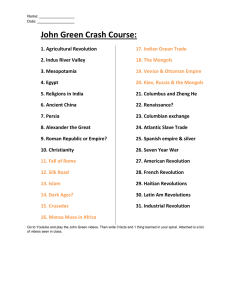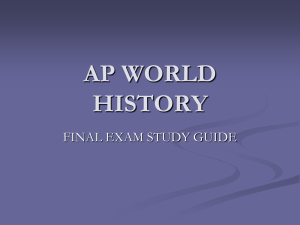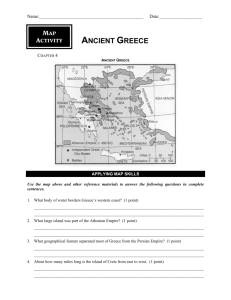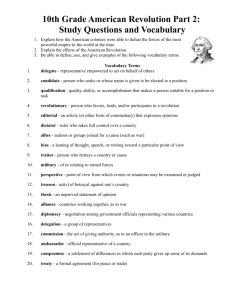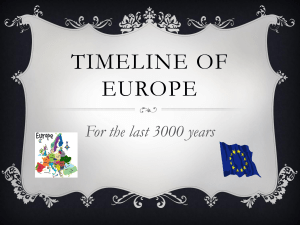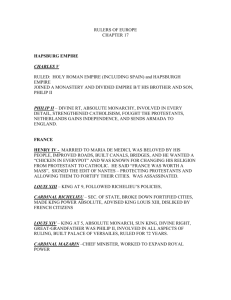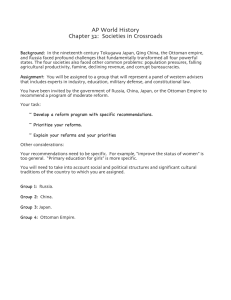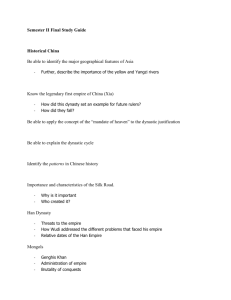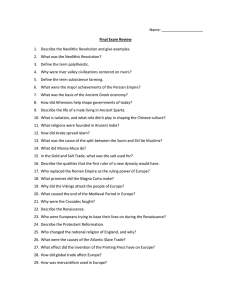Chapter 21 Review.pptx
advertisement
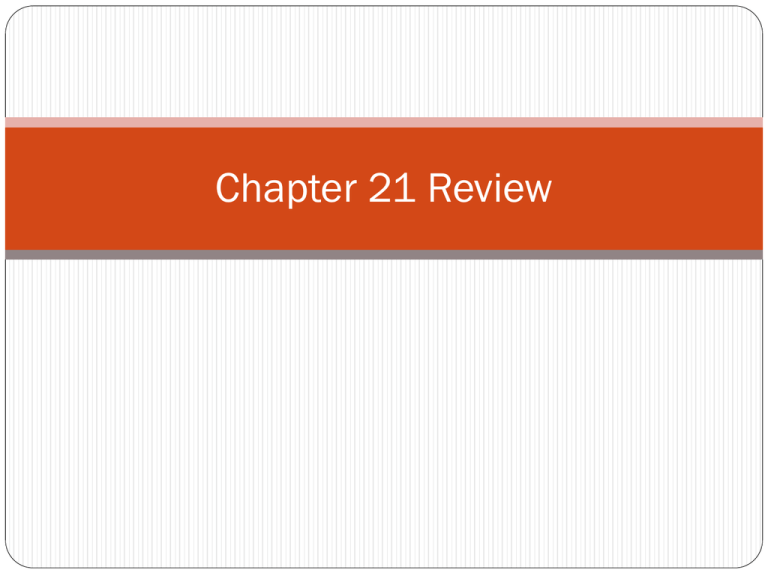
Chapter 21 Review relatively modern concept that a nation is composed of people who are joined together by the bonds of a common language, as well as common customs, culture, and history, and who, because of these bonds, should be administered by the same government. Nationalism contended that legitimate monarchies and dynasties, rather than ethnicity, provide the basis for political unity which falls in direct opposition to nationalism. Congress of Vienna Which language to use in schools and in government offices was always a point of contention for …….. Nationalist England brought ______________ under direct control in 1800. Ireland These TWO nations were included in the German Confederation….. Austria and Prussia This country considered themselves the protectors of Slavic people Russia anyone or anything that challenged conservatives political, social, and religious values. Liberals This man was known for his stiff opposition to Liberalism, especially to any idea of revolution…. Metternich legitimate monarchies, landed aristocrats, and established churches are the beliefs of….. Conservatives This empire included included Germans, Hungarians, Poles, Czechs, Slovaks, Slovenes, Italians, Croats, and other ethnic groups…. Austrian This created the German confederation, dissolving the Holy Roman Empire, and putting Austria in control of the newly formed Confederation….. Congress of Vienna This man promised the implementation of some form of constitutionalism, he violated his promise in 1817 when he created the Council of State instead, which was responsible to him alone. Frederick William III Group that advocated for a united Germany ….. Burschenschaften This was Issued in July 1819, it dissolved Burschenschaften It also provided for university inspectors and press censors Carlsbad Decrees After 1815, _____________ experienced two years of poor harvests. Great Britain Tory Prime Minister of England Passed the Corn Laws Lord Liverpool After an unruly mass meeting took place at Spa Fields near London, Parliament issued these acts which temporarily suspended habeas corpus and extended existing laws against seditious gatherings….. Coercion Acts On August 16, 1819, in Manchester at Saint Peter’s Fields, a militia was ordered by a local magistrate to move upon the audience and eleven people were killed; this became known as the…… Peterloo Massacre Royalists and conservatives alike appointed the brother of the beheaded Louis XVI as king of France as __________________. Louis XVIII Louis XVIII agreed to rule France as a _______________ monarch. Constitutional This described the powers of government in France that included a hereditary monarch and a bicameral legislature The Charter In the months following Napoleon’s defeat at Waterloo, some royalists carried out atrocities against former revolutionary leaders and supporters of Napoleon. White Terror Great Britain, Austria, Prussia, and Russia—meet time to time to discuss matters affecting Europe as a whole. This was called…. Concert of Europe Lord Byron went to fight in this and died there from cholera in 1824 Greek Revolution Britain, France, and Russia concluded that an independent Greece would benefit their strategic interests and, therefore, demanded that the Ottoman Empire grant Greece independence. Treaty of London Declared Greece independent Two years later, Otto I, the son of the king of Bavaria, was chosen to be the first king of Greece Second Treaty of London a former slave, emerged as the leader of the revolt in Haiti Toussaint L’Ouverture “The Liberator” Simon Bolivar “Disagreement” in Russia when trying to choose the next Tsar after Alexander I died. Decembrist Revolution This group called for a constitution and that Constantine be named tsar. Moscow Regiment Nicholas declared Poland to be an integral part of the Russian Empire with this statute…. Organic Statute Charles X called for a new election in 1830 in which liberals scored stunning victories. Instead of accepting the new Chamber of Deputies, the king and his ministers planned a seizure of power. Meanwhile, Polignac sent a naval expedition to Algiers in North Africa which the French conquered and added to their empire; behind this smokescreen, Charles X issued the Four Ordinances which amounted to a royal coup d’etat. o Four Ordinances restricted freedom of press, limited franchise to only the wealthiest people in the country, and called for new elections July revolution commonly referred to as “king of the French” rather than “king of France.” Louis Philippe It was a liberal measure passed for the conservative purpose of preserving order in Ireland. Only the wealthiest Irish could vote. Catholic Emancipation Act First major bill to reform British Parliament The Great Reform Bill
